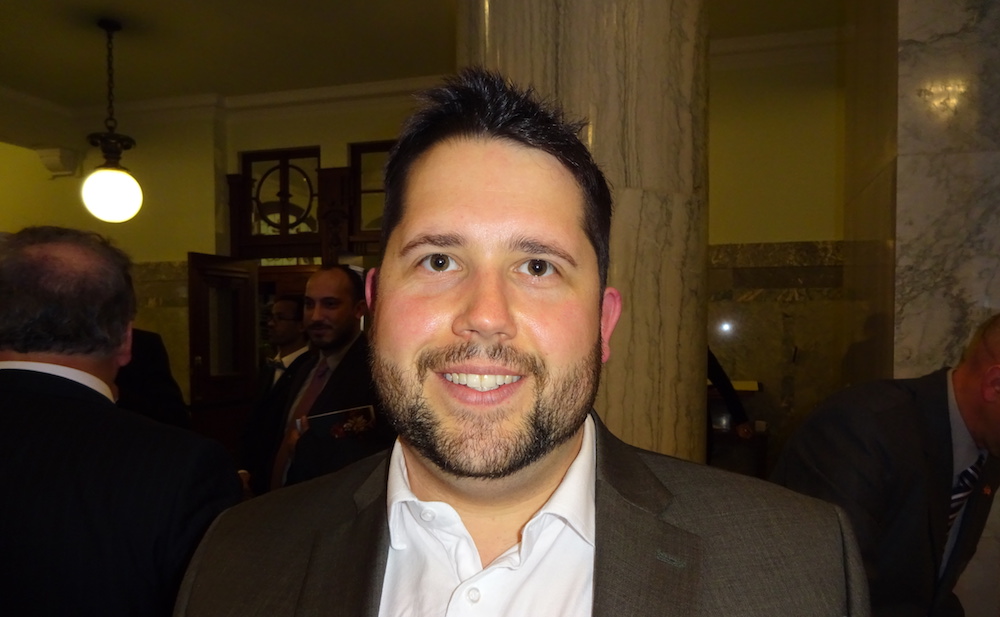Alberta’s United Conservative Party Opposition was in furious damage control mode yesterday after Edmonton Public Schools’ release of “hypothetical” estimates of four budget scenarios for what anticipated UCP cuts could mean for students, parents and teachers.
The scenarios were based on past hints UCP Leader Jason Kenney has dropped about the size of cuts he would like to impose on Alberta government operations — a necessary approach since the UCP won’t offer specific details on its budget plans for education, health care and other government programs that enjoy broad public support.
Worst-case bottom line: 932 teachers’ jobs cut in Edmonton, packed classrooms with fewer resources, with similar bleak educational outcomes repeated in cities and towns across the province.
Both UCP officials and the party’s unacknowledged Twitter troll farm immediately went after Ward F Trustee Michael Janz, claiming he is a New Democrat who was politically motivated when he asked school board administrators to crunch the numbers to come up with impact estimates based on various spending levels.
“That report was clearly solicited by an NDP member of the Edmonton school board who thinks it’s a good use of the scarce resources of the school board to basically produce a document to attack the NDP’s opposition,” Kenney griped on Tuesday. That thought was repeated numerous times on Kenney’s own social media and the anonymous Unite Alberta Twitter trolling account.
The furious UCP Tweetstorm pleaded innocence on Kenney’s behalf by arguing — accurately if not particularly defensibly under the circumstances — that he has never mentioned an actual percentage figure for education spending reductions during the “period of fiscal responsibly” he euphemistically keeps promising.
As for Janz being a New Democrat or a member of any other political party, that’s hard to say, since party membership lists are private.
But I can tell you with confidence that before the 2015 provincial election that brought the NDP to power, the Progressive Conservative Party — then the government of Alberta and one of the two conservative parties that merged to form the UCP — tried hard to recruit Janz as a high-profile candidate in Edmonton.
He’s also been touted from time to time as a potential candidate for the Alberta Party and the Alberta Liberal Party.
And why not? He’s a popular local politician with a track record of winning school board elections with very large majorities. He’s served eight years on the board, three as its chair. Edmonton voters obviously have confidence in his commitment to public education and his willingness to advocate energetically for adequate funding for public schools and their students.
Given that, though, who could blame him for now preferring the actual track record of the NDP Government of Premier Rachel Notley, with its proven support for public education and health care, to the coded calls for austerity, big tax cuts to benefit the wealthy, and balanced budgets no matter what the cost that are the hallmark of the UCP?
Kenney’s claim he can balance the budget while cutting taxes without damaging the two largest items in the provincial budget is simply not credible.
In the absence of any details of the UCP’s true education spending plans, Janz was doing his job responsibly to ask board number crunchers to estimate the practical meaning of cuts of 5 per cent over the next four years, 3 per cent over four years, no new funding for enrollment growth, and a provincially imposed hiring freeze. Other Alberta school boards need to do the same.
“The current government’s commitment to education has provided the district with relatively stable funding,” the administration report to trustees observed. “Although the funding rates have not been adjusted to offset inflationary increases, the district has continued to receive enrollment growth funding.”
The results of the estimates, as the CBC reported, were characterized by trustees as “grim” and “bleak.” Accordingly, trustees passed a motion Tuesday urging all parties to make their positions on education funding public by mid-November.
Janz’s view on what the next move should be is pretty clear: “We shouldn’t be debating deep cuts or drastic cuts to our growing, ever diverse and ever complex education system at all,” he Tweeted yesterday. “ALL parties should be talking about how to spend more and not less on public education!”
The narrative the UCP and its friends in media are trying to establish is that the outcome of the election’s a done deal — and after next spring Kenney will be getting to work on that “period of sustained fiscal restraint” he vows to implement.
Of course, being so confident of victory in the election expected in the spring of 2019 that it doesn’t feel the need to tell voters what it’s policies will actually be is not a unique strategy on the right. It worked for Ontario Premier Doug Ford on June 4, and we all now know how that’s turning out.
Instead of blunderbuss Tweet attacks on Janz and even the journalists who write about him, though, the UCP could quickly defuse this latest problem by stating clearly what its education spending proposals are, just as the trustees have requested.
… Or could it?
This post also appears on David Climenhaga’s blog, AlbertaPolitics.ca.
Help make rabble sustainable. Please consider supporting our work with a monthly donation. Support rabble.ca today for as little as $1 per month!




